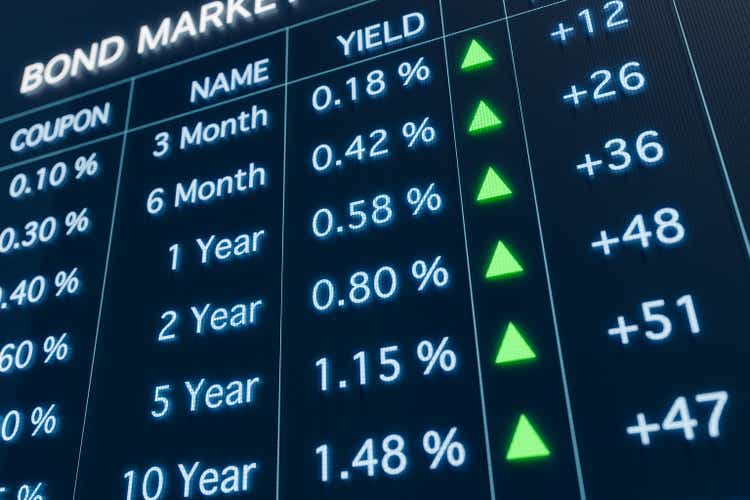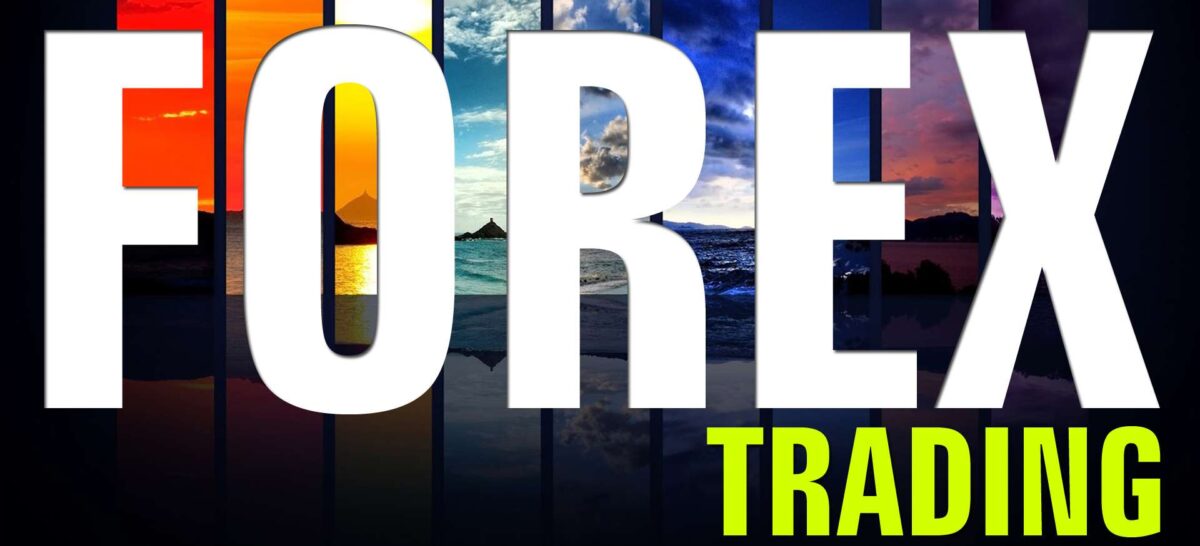
Torsten Asmus
Introduction
Funding grade company bond funds are usually a more sensible choice than high-yield bond funds in occasions of market turmoil. Nevertheless, final yr was a brutal yr for each varieties of funds because the Federal Reserve aggressively hiked the charge. Will this pattern proceed in the direction of the tip of 2023 and into 2024? On this article, we’ll analyze iShares 5-10 12 months Funding Grade Company Bond ETF (NASDAQ:IGIB) and supply our insights and proposals.
Funding Thesis
IGIB invests in funding grade company bonds in the US. The fund gives a sexy yield of 5.93% and has a high quality bond portfolio with low default charges. Nevertheless, an financial recession which will seemingly occur in early 2024 could set off a selloff. Lengthy-term earnings buyers ought to deal with this occasion as shopping for alternative to build up extra shares because the occasion will seemingly be non permanent. Over the long term, we anticipate each capital appreciation and stable curiosity incomes.

YCharts
Fund Evaluation
IGIB has carried out poorly since 2021
IGIB reached its historic peak through the pandemic due to the Federal Reserve’s quantitative easing financial coverage. Nevertheless, skyrocketing inflation began in late 2021 has induced the Federal Reserve to shortly reverse its financial coverage from easing to tightening.
Because of this, IGIB has declined by over 21% since its value peak reached in 2021. Its lack of 21.3% was not the worst, although. Its peer fund comparable to iShares 10+ 12 months Funding Grade Company Bond ETF (IGLB) suffered a a lot larger lack of 36.5%. The explanation for this larger lack of IGLB is as a result of longer length of the bonds in its portfolio. On the whole, the longer the length of the bond, the extra delicate its value is to the change of charge and vice versa. In distinction, shorter-term bond funds comparable to iShares 1-5 12 months Funding Grade Company Bond ETF (IGSB) have solely dropped by 9.7% attributable to its portfolio’s shorter length attribute.

YCharts
IGIB owns a portfolio of investment-grade company bonds
IGIB’s portfolio consists of practically 100% funding grade company bonds. As could be seen from the chart beneath, BBB rated and A rated bonds characterize about 52.4% and 41.3% of the portfolio respectively. These bonds have very low default charges. In truth, the default charge for 3-year and 10-year funding grade company bonds are solely 0.41% and 1.81% respectively. With a 30-day SEC yield of 5.93%, this yield is means increased than the default charges. Subsequently, default threat is sort of minimal.

iShares
Nevertheless, there may be draw back threat in an financial recession
Though, IGIB has a high-quality portfolio of funding grade company bonds, its near-term threat can’t be ignored. We imagine the Federal Reserve’s coverage of holding the speed elevated or increased, and for longer to fight persistent inflation, could finally trigger the U.S. economic system to fall right into a recession. The explanation that it has but to occur is as a result of financial coverage usually takes 6~12 months to propagate by means of the whole economic system. Subsequently, we could finally begin to really feel this influence in the direction of the tip of the yr or within the first half of 2024. If a recession reveals up, funding grade company bonds could fall even additional as buyers search protected haven in treasuries as an alternative. As could be seen from the chart beneath, IGIB’s fund value skilled adverse spikes amid the preliminary outbreak of the worldwide pandemic in 2020 and within the Nice Recession in 2008/2009. In distinction, its treasury fund peer iShares 7-10 12 months Treasury Bond ETF (IEF) didn’t expertise any decline throughout these two durations. The reason being as a result of buyers usually understand U.S. treasuries as risk-free belongings and have a tendency to rotate cash out of riskier belongings comparable to company bonds into treasuries.

YCharts
One other potential rationalization that IGIB tends to expertise a adverse spike in a recession is as a result of over 52% of IGIB’s portfolio is BBB-rated bonds. As we all know, BBB-rated bond is the lowest-rating bonds within the funding grade class and is extra susceptible in an financial recession than A, AA, or AAA bonds. In an financial recession, credit standing companies could downgrade some BBB-rated bonds to non-investment grade bonds. Because the market anticipates these downgrades to occur, bond costs could react beforehand and trigger a fall in IGIB’s fund value.
However, buyers ought to deal with this adverse spike as shopping for alternative
Regardless of the actual fact there tends to be a adverse spike for company bonds throughout an financial downturn, long-term buyers ought to embrace this volatility. As funding guru Warren Buffett usually says, “Be grasping when others are fearful,” long-term buyers ought to deal with this uncommon adverse spike as shopping for alternative. In truth, IGIB truly outperformed its treasury peer IEF in the long term. As could be seen from the chart beneath, IGIB’s 10-year whole return of 19.7% is clearly significantly better than the 7.6% return of IEF.

YCharts
Investor Takeaway
Whereas we could also be nearer to the tip of this charge hike cycle than the start of this yr, a recession will not be too far-off too. As we’ve mentioned in our article, there should be the opportunity of a adverse spike in IGIB’s fund value. Nevertheless, buyers mustn’t worry and as an alternative ought to deal with this as shopping for alternative. Because the Federal Reserve will often flip its financial coverage from tightening to loosening in an financial recession, we see potential capital features afterward. Subsequently, buyers will have the ability to earn each a stable curiosity earnings and a few capital features in the long term. Therefore, we imagine long-term earnings buyers ought to personal this fund.
Extra Disclosure: This isn’t monetary recommendation and that every one monetary investments carry dangers. Buyers are anticipated to hunt monetary recommendation from professionals earlier than making any funding.
